Teenager Parenting Plans and Custody Schedules
(13-18 years)
Making a parenting plan for a 13- to 18-year-old
A parenting plan for a teenager has all of the information of a basic parenting plan, but it is customized to fit the needs of a 13 to 18-year-old.
Here are some things you need to know about teenagers to make your parenting plan more effective.
- Teenagers use the family as a base of support and guidance and they need parental nurturing and oversight. Your plan should allow both parents to be involved in your teenager's life.
- Teenagers need to explore different activities and develop relationships outside of the family. Your plan should be flexible because activities may conflict with parenting time.
- Teenagers prefer to spend time with friends and peers instead of family. Your plan should allow your teenager to have relationships and spend time with friends.
- Teenagers get very busy with activities, jobs, friends and sports as they get older. Your plan should adapt to fit your teenager's schedule.
- Teenagers want independence and control over their own schedule. Your plan should take your teenager's preferences into consideration.
As teenagers get older they will be able to figure out parenting time by talking directly with each parent. They may be angry or resentful if parents ignore their wishes.
Teenagers may have conflicts with parenting time because of their busy schedule. Parents can attend athletic, performance, academic and other activities to stay involved in the teenager's life.
Parents must communicate with each other about the teenager. Parents should discuss things like curfews, driving, dating, etc. to make sure they are consistent. You may want a provision in your plan about how the parents will communicate.
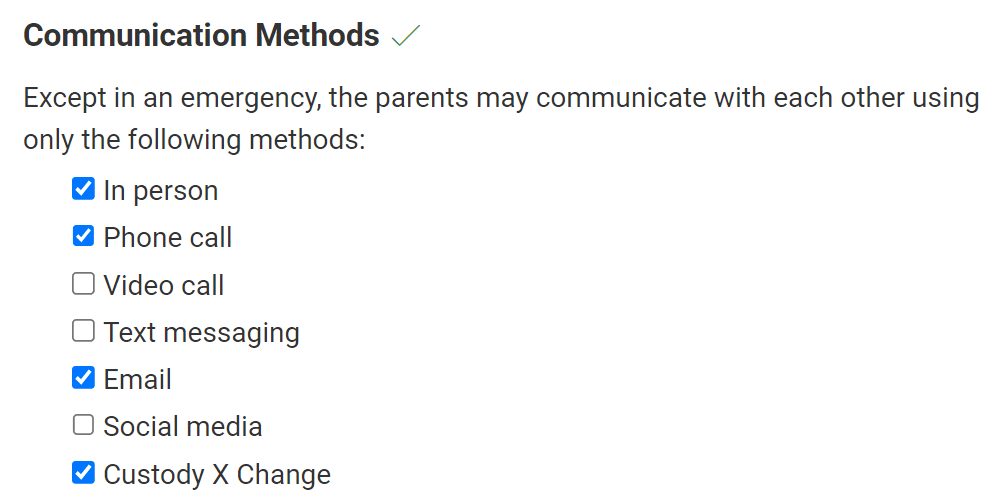
You can customize this to fit your situation with Custody X Change.
As your teenager gets older, both parents need to discuss future goals about education, work and other post-high school plans with the teenager.
Making a custody schedule for a 13- to 18-year-old
Your custody schedule should support your teenager's independence while maintaining close contact with both parents.
As you make your schedule, you should consider your teen's schedule and commitments, the distance between the parents' homes, the parents' work schedules, and your teen's need for unstructured time.
Some schedules that work for teenagers are:
An alternating weeks schedule where the teen alternates weeks with the parents.

You can customize this to fit your situation with Custody X Change.
An alternating weekends schedule where the child lives with one parent and sees the other parent every other weekend.

You can customize this to fit your situation with Custody X Change.
The 1st, 3rd and 5th weekends schedule or the 2nd, 4th and 5th weekends schedule where your child lives with one parent and has assigned weekends with the other parent.
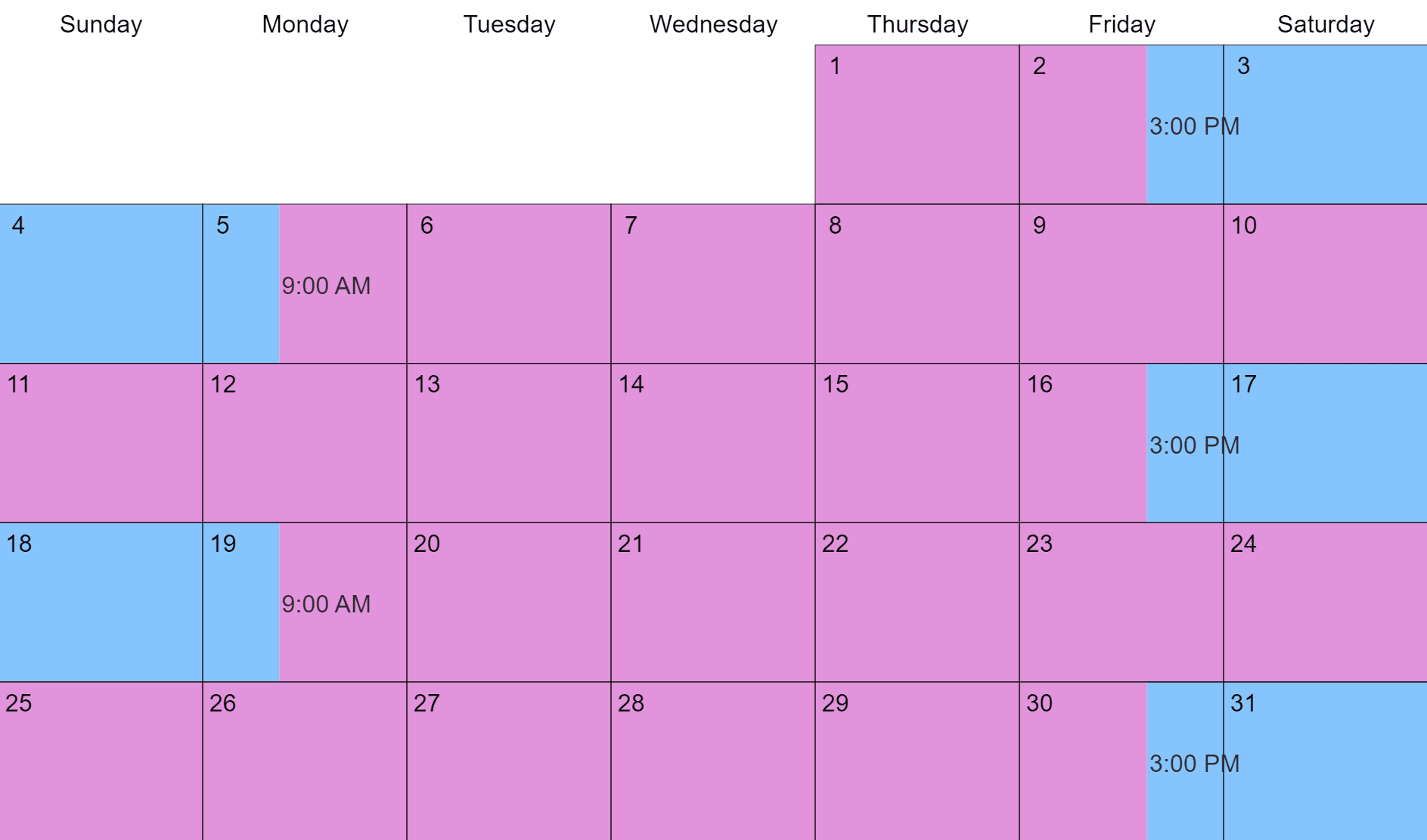
You can customize this to fit your situation with Custody X Change.
Many different schedules will work for a teenager. Depending on your situation and your teen's preferences, you can try the following schedules:
- The 5-2 schedule or the 2-2-5-5 schedule where your teen spends 5 days with one parent and 2 days with the other parent.
- The 2 weeks each schedule where your teen spends 2 weeks with one parent and 2 weeks with the other parent.
- The every 3rd week schedule where your teen spends 2 weeks with one parent and the 3rd week with the other parent.
- The 4-3 schedule or the 3-4-4-3 schedule where your teen spends 4 days with one parent and 3 days with the other parent.
- The every 3rd weekend schedule where your teen spends every 3rd weekend with the nonresidential parent.
If your teenager wants to live primarily in one home (have a home base) because of the importance of their friends and other activities you can schedule time throughout the week for the teen to see the other parent. Both parents can attend a teenager's activities to see the teen more.
As your teenager gets older you may need to change your schedule to fit your teen's busy schedule. Parents should schedule phone calls and stay in contact other ways if they aren't able to see the teen as much.
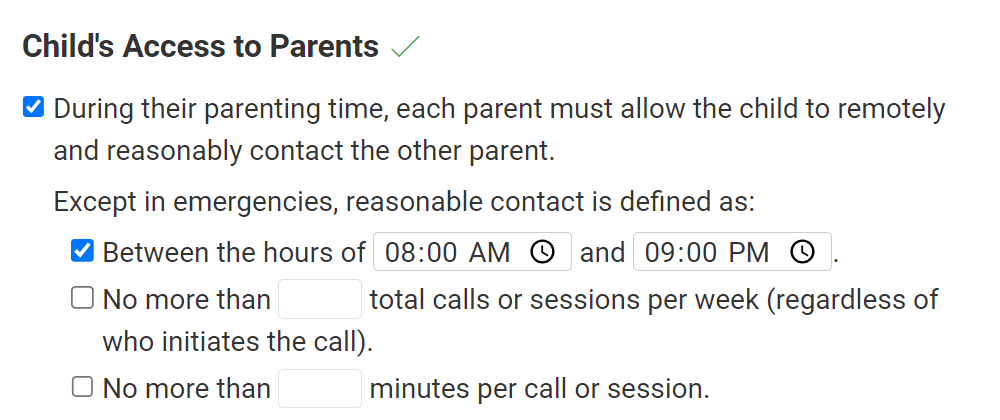
You can customize this to fit your situation with Custody X Change.
You can make a holiday schedule with your teenager to show where your teen will spend the holidays. Holidays can be a good time to see a nonresidential parent. Your teenager may want to be able to spend some holiday time with friends and you should work with your teenager so that can happen.
For younger teenagers you can make a summer break schedule with a different residential schedule during the summer break. As teenagers become more involved in activities or get a job you should be flexible and willing to work with the teenager's schedule.
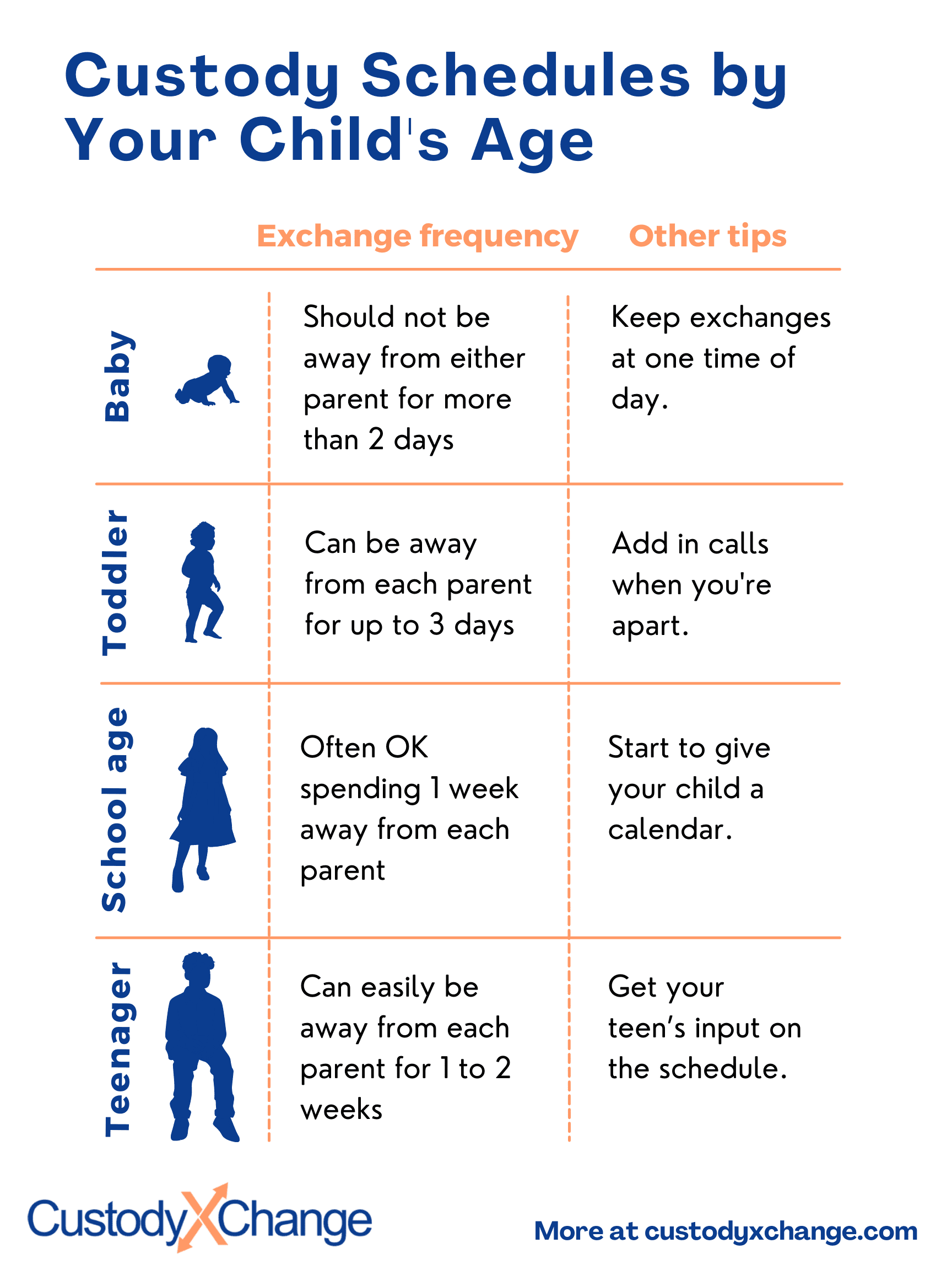
Development from 13 to 18 years old
Understanding some of the development of teenagers from 13 to 18 can help you make a better parenting plan and custody schedule for your teen.
From 13 to 18 years old, teenagers develop a sense of personal identity within the rules and regulations of society, school, and friends. They gradually separate from parents and family and develop a sense of self.
Girls in this age group typically mature faster than boys. There is a wide range of abilities to make decisions and handle responsibility. Parents need to provide guidance and support to help their teen learn how to be independent.
13- to 18-year-olds prefer to spend time with friends than with family and parents. As they grow older they become able to handle their own scheduling of social activities, work, and other responsibilities.
There are many physical and emotional changes during this time. Parents must talk to their teenager about sexuality, relationships, and other important topics. Teenagers often lose control of their emotions and can have mood swings.
This is the time when parents must help their teen prepare for independent life after high school. Parents should talk with their teen about educational goals, work plans, etc.
Get help with teenager parenting plans and schedules
Creating a plan and schedule on your own can feel overwhelming. You have to be sure to use airtight legal language and can't omit any required information.
The Custody X Change app takes the guesswork out of the equation. It walks you through each step of creating a parenting plan and helps you build a schedule piece by piece.
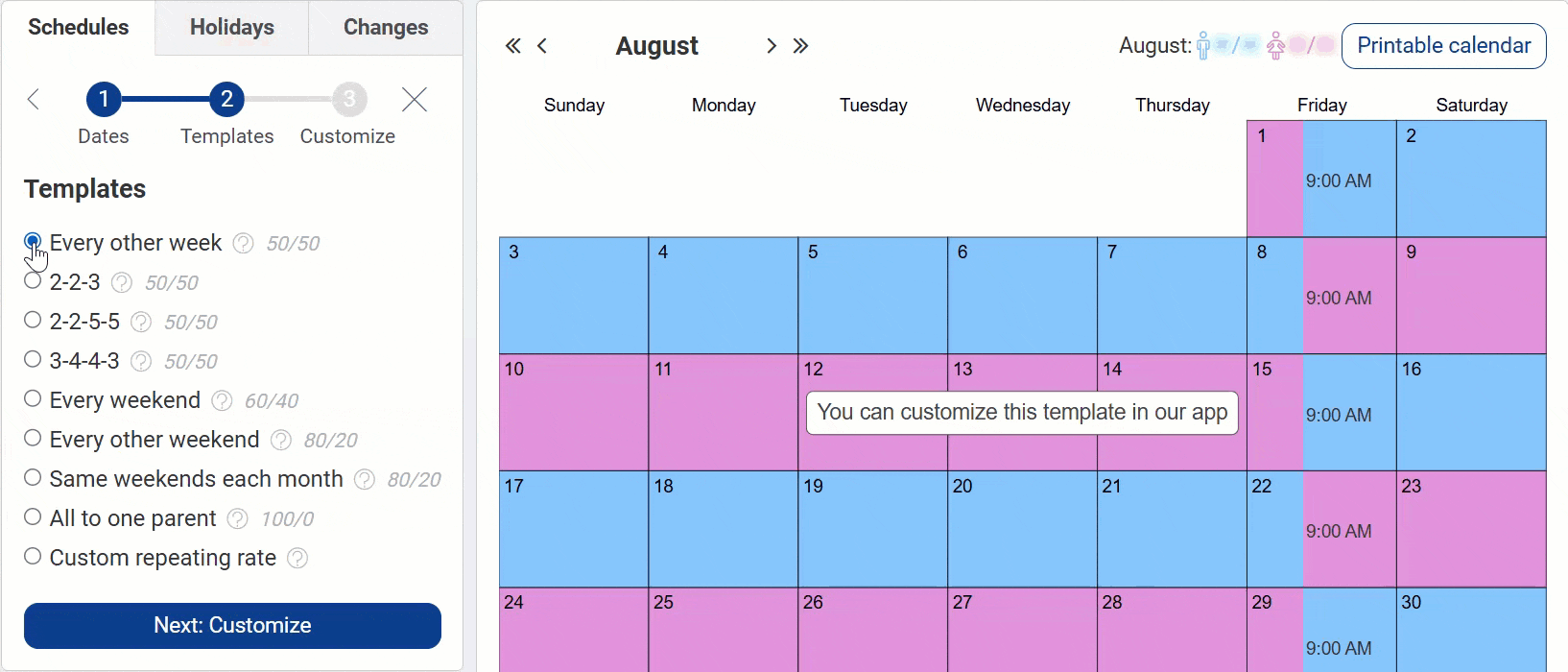
You can customize this to fit your situation with Custody X Change.
As a result, you get documents and calendars that meet your family's needs, as well as the court's standards.
For quick, reliable and affordable help making a parenting plan and custody schedule, turn to Custody X Change.
